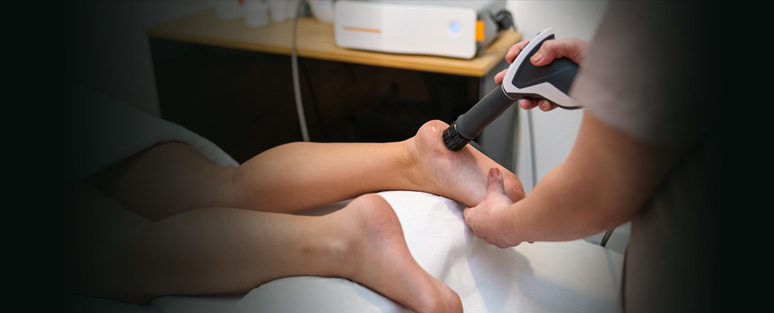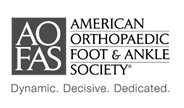
Orthopedic procedures are essential for addressing numerous musculoskeletal issues, including fractures, joint injuries, and chronic conditions like osteoarthritis. When it comes to these specialized surgeries, orthopedic surgeons are the true experts. These highly trained medical professionals possess the knowledge, skills, and experience needed to diagnose, treat, and manage orthopedic conditions effectively, including conservatively. In this blog post, we will explore why orthopedic surgeons are unquestionably the experts for orthopedic procedures, supported by credible sources and evidence.
Education and Training
Orthopedic surgeons are not just ordinary doctors; they are experts who have invested years in honing their skills and knowledge. Their journey to becoming specialists in musculoskeletal health is a testament to their dedication. To become an orthopedic surgeon, one must embark on a comprehensive educational and training path that allows them to not only understand the interplay between various body systems and diseases on the musculoskeletal system but to identify the best ways to treat musculoskeletal conditions conservatively as well as operatively.
First, they start with a bachelor’s degree in fields such as biology, chemistry, or pre-medical studies, setting the foundation for their medical journey. This early education lays the groundwork for the intricate knowledge they'll need in the future. Following their undergraduate studies, aspiring orthopedic surgeons enroll in medical school, a four-year program where they immerse themselves in the world of medicine, in its entirety. Here, they acquire the foundational medical knowledge and skills that form the bedrock of their future practice. But that's just the beginning.
After medical school, they enter a demanding five-year surgical residency program. During this period, they receive hands-on training in various orthopedic specialties. This includes everything from trauma surgery to sports medicine, joint replacement, and more. It's a time of intensive learning and practical experience that shapes them into experts. Some orthopedic surgeons take their commitment even further by opting for additional fellowship training, which lasts one to two years. During this optional phase, they gain highly specialized expertise in areas such as pediatric orthopedics, spine surgery, or hand surgery. This advanced training equips them to handle the most challenging cases in their chosen subspecialties.
The American Academy of Orthopaedic Surgeons (AAOS) is a highly credible source that underscores the importance of this rigorous education and training. It's this preparation that ensures orthopedic surgeons are not just prepared but qualified to handle orthopedic procedures effectively, both conservatively and operatively. Their extensive knowledge and hands-on experience are the cornerstones of their expertise, making them the go-to professionals for musculoskeletal issues.
This journey from undergraduate studies to medical school, followed by residency and optional fellowship training, is the vessel in which orthopedic surgeons are made into the experts we rely on to keep our bones, joints, tendons and muscles in optimal condition. Their dedication to lifelong learning and commitment to excellence set them apart in the world of medicine. When it comes to orthopedic procedures, it's their expertise that patients can trust with confidence.
Specialized Expertise
Orthopedic surgeons are specialists in musculoskeletal health, focusing exclusively on the diagnosis and treatment of conditions affecting bones, joints, muscles, ligaments, and tendons. Their specialized expertise sets them apart from other medical professionals as they have the training and experience to tackle a wide array of orthopedic issues. Their comprehensive understanding of musculoskeletal anatomy and biomechanics ensures precise and effective treatment that includes conservative treatment aggressive non-operative treatment such as PRP or Shockwave therapy, or Surgery when all else fails. They are best equipped to devise a comprehensive treatment plan to improve your level of function as their comprehensive understanding of musculoskeletal anatomy and biomechanics ensures precise and effective treatment.
Advanced Surgical Skills
Orthopedic procedures often involve difficult surgical techniques, and orthopedic surgeons are well-equipped to handle these challenges. Their advanced surgical skills, honed during their residency and fellowship training, enable them to perform orthopedic surgeries with precision and minimal complications.
For instance, the AAOS highlights the importance of surgical skills in orthopedic practice and emphasizes that orthopedic surgeons continually refine their techniques to provide the best possible outcomes for their patients (source: AAOS website).
Patient-Centered Care
Orthopedic surgeons prioritize patient-centered care, ensuring that each patient's unique needs and goals are addressed throughout the treatment process. They collaborate closely with patients to discuss treatment options, set expectations, and develop individualized treatment plans. Also, orthopedic surgeons are dedicated to maximizing patient outcomes. This commitment is evident in their emphasis on conservative as well as operative care. If surgery is ultimately needed patients will have thorough preoperative and postoperative care, which includes thorough evaluations, rehabilitation plans, and ongoing follow-up to monitor progress and address any concerns.
Board Certification and Continuing Education
To maintain their status as experts in the field, orthopedic surgeons must pursue board certification from organizations such as the American Board of Orthopaedic Surgery (ABOS). This certification involves an examination process that assesses a surgeon's knowledge and skills in orthopedic surgery. It serves as a credential that signifies a surgeon's commitment to maintaining the highest standards of patient care.
Orthopedic surgeons also engage in continuous learning and professional development through ongoing education, seminars, conferences, and research. Staying up to date with the latest advancements in orthopedic medicine and musculoskeletal health is important to providing the best possible care for patients.
Multidisciplinary Collaboration
Orthopedic surgeons often work as part of a multidisciplinary healthcare team. They collaborate with other specialists, including primary care physicians, physical therapists, radiologists, and rheumatologists, to ensure that patients receive comprehensive care. This team-based approach enhances the quality of care and promotes better patient outcomes.
Proven Success Rates
Orthopedic surgeons are not only experts in general musculoskeletal health but also excel in specific areas such as ankle and foot surgeries. These procedures are critical for addressing a wide range of issues, from sprained ankles to complex deformities. The success rates of ankle and foot surgeries highlight the expertise of orthopedic surgeons in these specialized fields.
One common ankle surgery is ankle arthroscopy, which involves the use of small incisions and a camera to diagnose and treat various ankle conditions, including ligament injuries and cartilage damage. Studies have shown that ankle arthroscopy can provide significant pain relief and functional improvement. For instance, a study published in the journal "Foot & Ankle International" demonstrated that arthroscopic treatment of anterior ankle impingement resulted in a success rate of approximately 80%, with patients reporting reduced pain and improved function (source: Foot & Ankle International journal).
Research and Innovation
Orthopedic surgeons are often involved in research and innovation, driving advancements in orthopedic procedures and techniques. They contribute to the development of cutting-edge interventions, new surgical approaches, implant materials, and rehabilitation protocols, all aimed at enhancing patient outcomes.
Conclusion
Orthopedic surgeons are unquestionably the experts when it comes to orthopedic procedures. Their extensive education and training, specialized expertise, advanced surgical skills, commitment to patient-centered care, board certification, and ongoing professional development all contribute to their status as leaders in the field of musculoskeletal health. With proven success rates and a dedication to research and innovation, orthopedic surgeons continue to provide high-quality care and transform the lives of countless individuals suffering from orthopedic conditions. When it comes to orthopedic procedures, you can trust the expertise and commitment of orthopedic surgeons to deliver the best possible outcomes.
Click Here to schedule a consultation with Dr. Natalie Mesnier at Multnomah Orthopedic Clinic. Your orthopedic health is her priority.














